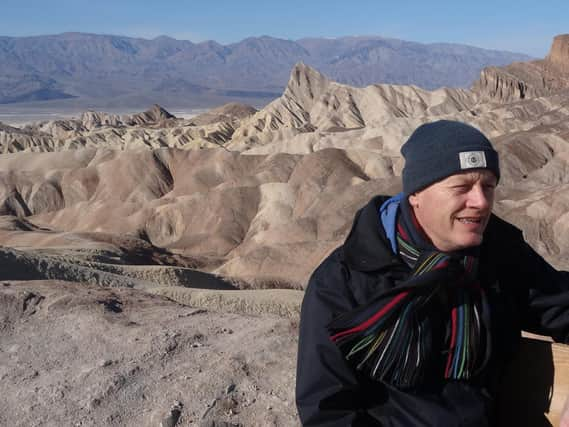University of Brighton professor to lead research project into Amazon River Basin


A Natural Environment Research Council (NERC) grant of £646,366 will allow the Universities of Brighton and Exeter, as well as a range of international partners, to explore the future evolution of the South American river and its floodplain.
Although climate change and deforestation have had a significant impact on the Amazon River Basin over the past 30 years, dams have only recently started to threaten the river system following a programme of construction in Brazil, Bolivia, Peru and Ecuador.
Advertisement
Hide AdAdvertisement
Hide AdWith over 300 dams either planned or currently being built in the Amazon Basin, there is widespread concern that they will lead to major ecological disturbances, abandonment of the extensive wetlands that make up the adjacent floodplain, river instability and bank collapse and depletion of vital nutrients that are relied upon by the fragile ecosystem.
As models are not yet able to predict the future impact of dams on the Amazon - due to its sheer size and complexity - the project will seek to develop a new approach to modelling that operates at a series of scales up to a 10 km grid.
Professor Ashworth, who specialises in the dynamics of the world’s largest rivers, will lead the field surveys that take place on the Upper Amazon (known locally as the Solimões). His responsibilities will involve co-ordinating three survey vessels that will map the river bed, flow structure and suspended sediment flux during peak flood flows. The field data will be used to calibrate parameters in a river channel network model that is part of a continental-scale model that routes water and sediment through the entire Amazon Basin.
A new integrated model will be created that predicts how the Amazon will change over the next 200 years if planned mega-dam construction takes place.
Advertisement
Hide AdAdvertisement
Hide AdProfessor Ashworth said: “The future of the Amazon River Basin is at a critical juncture. Climate change and deforestation have driven increased soil erosion, larger floods and more frequent droughts over the past 30 years. Now, widespread hydropower dam construction in Brazil, Bolivia, Peru and Ecuador threaten the basin’s future.
“This ambitious project will be the first to model the impact of environmental change on a continental-scale river basin. It comes with frightening demands on big data sets, computational power and efficiency and presents an incredible opportunity to undertake ship surveys in the largest river basin in the world.
“Our team of 18 leading global scientists will combine to deliver a step-change in our understanding of the multiple stressors impacting on the Amazon River Basin”.
The research project will begin on September 1, 2020 and run for three years with public engagement events at the Royal Geographical Society (RGS) and the Big Bang Science Fair.
A message from the Editor, Gary Shipton:
Advertisement
Hide AdAdvertisement
Hide AdIn order for us to continue to provide high quality and trusted local news, I am asking you to please purchase a copy of our newspapers.
With the coronavirus lockdown having a major impact on many of our local valued advertisers - and consequently the advertising that we receive - we are more reliant than ever on you helping us to provide you with news and information by buying a copy of our newspapers.
Our journalists are highly trained and our content is independently regulated by IPSO to some of the most rigorous standards in the world. But being your eyes and ears comes at a price. So we need your support more than ever to buy our newspapers during this crisis.
Stay safe, and best wishes.
Comment Guidelines
National World encourages reader discussion on our stories. User feedback, insights and back-and-forth exchanges add a rich layer of context to reporting. Please review our Community Guidelines before commenting.